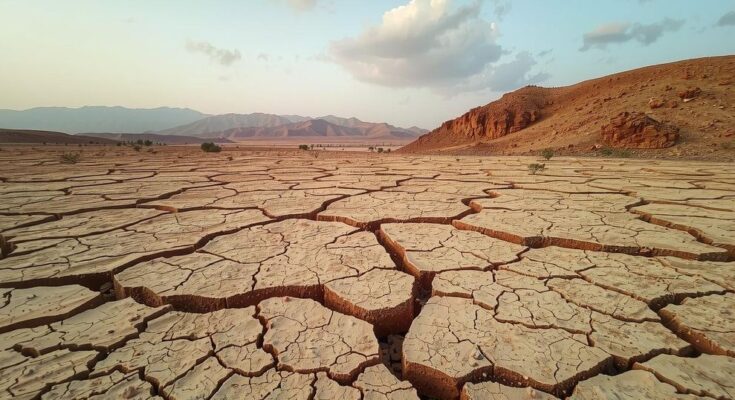Finance Minister Muhammad Aurangzeb stated that climate change severely affects Pakistan’s food production and livelihoods, ranking Pakistan as the most vulnerable country in the Climate Risk Index for 2025. He discussed the risks associated with glacial lake outburst floods and introduced a Glacier Conservation Strategy to address these issues. The United Nations has declared 2025 the International Year of Glaciers’ Preservation, emphasizing the need to protect these vital freshwater sources.
Finance Minister Muhammad Aurangzeb recently highlighted the profound impact of climate change on food production and the livelihoods of millions in Pakistan. In the European think-tank Germanwatch’s Climate Risk Index (CRI) for 2025 report, Pakistan was designated the most vulnerable country to climate change due to catastrophic flooding incidents in 2022, which were exacerbated by unprecedented monsoon rainfall and glacial lake outburst floods (GLOFs).
During a ceremony in Islamabad to commemorate the first ‘World Day of Glaciers’, the finance minister emphasized the adverse effects of a disrupted water cycle on crop yields and food security. He noted that Pakistan suffers from significant risks associated with GLOFs, especially given that it has over 3,000 glacial lakes, a third of which are considered highly volatile, endangering millions.
The finance minister pointed out the importance of developing a framework for glacial protection and resilience, stressing, “While financing is critical, the real challenge for us is capacity building.” Despite the $10 billion in pledges received after the floods, only one-third has been allocated due to challenges in developing investable projects.
The first ‘World Day of Glaciers’ serves to foster dialogue regarding global glacier predicament and its consequences on water, food, and energy security. Recognizing these challenges, the Pakistani government is introducing a ‘Glacier Conservation Strategy’ aimed at protecting these critical ecosystems.
The retreat of glaciers contributes to increased natural disasters, posing risks to downstream communities and vital infrastructures. As glaciers are essential for climate regulation and freshwater supply, their rapid decline due to anthropogenic climate change signifies an urgent need for action.
To draw attention to this issue, the United Nations has declared 2025 as the International Year of Glaciers’ Preservation to emphasize glacier conservation’s significance and support those affected by climatic changes in glacial areas. These initiatives underline the fundamental importance of mountain regions as a source of global freshwater resources.
In conclusion, climate change presents significant threats to Pakistan’s food security and livelihoods, with recent floods highlighting the urgency for targeted resilience strategies. The introduction of a Glacier Conservation Strategy reflects a proactive response to counteract these environmental challenges while capacity building remains crucial for effective implementation. Elucidating the importance of glacier ecosystems underscores the global need for vigilance and collaborative efforts in preserving these natural resources.
Original Source: www.dawn.com




